IVR Payments: The Ultimate Guide to IVR Payment Processing
by Erina Suzuki | Published On October 31, 2024
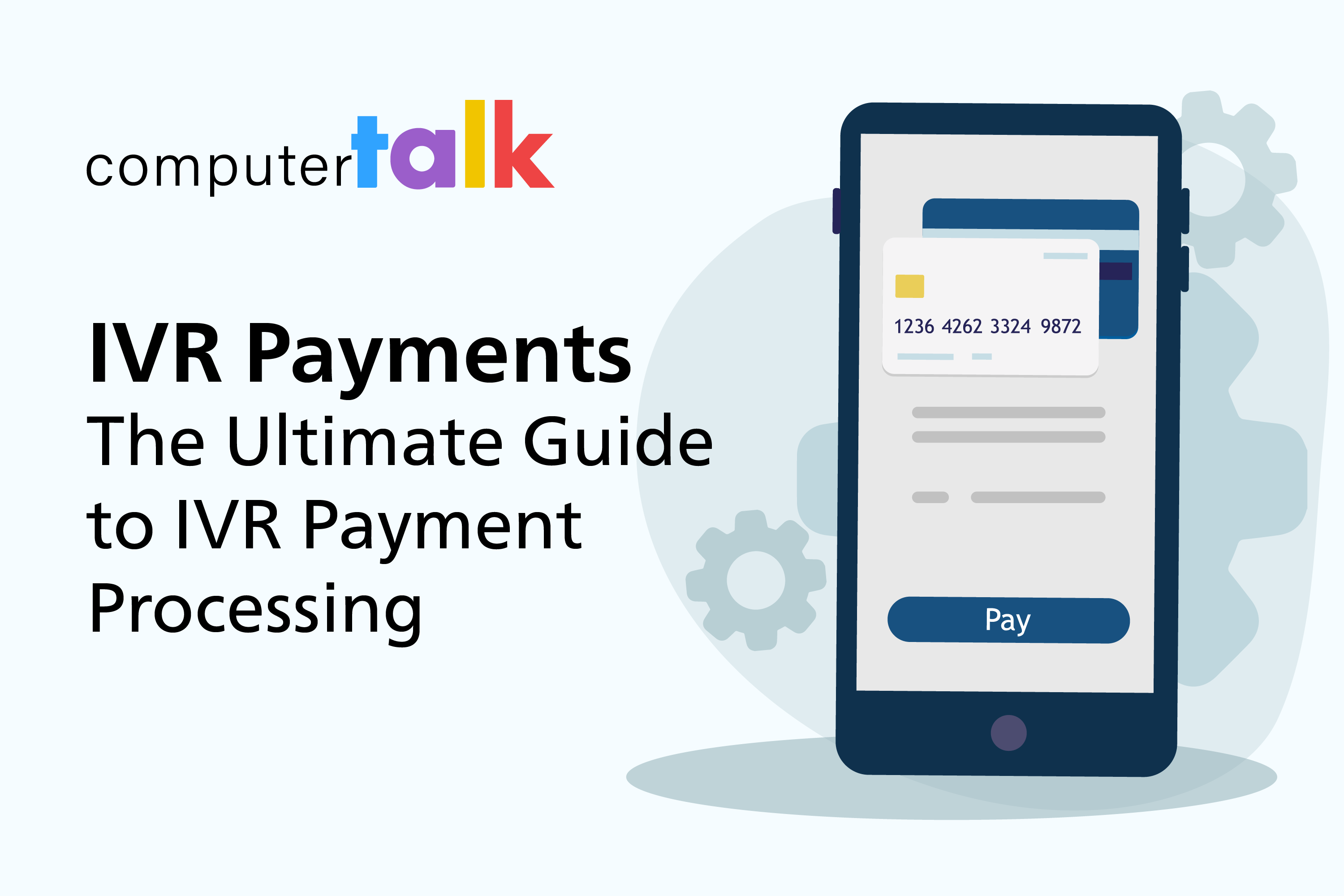
Modern IVR systems are more than just valuable tools that help customers navigate their journey with your call center. Today’s solutions allow companies to automate a range of processes, from routing callers to the right agent, to processing transactions.
Systems that enable IVR payments have emerged as a valuable, modern and convenient solution for making payments over the phone. With simple voice prompts, IVR systems can guide consumers through the process of completing a transaction, without requiring them to interact with a live agent.
Not only does this improve efficiency and productivity in the contact center by reducing the number of calls agents need to handle directly, but it can improve security too, by ensuring contact center agents don’t hear or record sensitive payment details.
In this guide, we’ll tell you everything you need to know about IVR payment systems, how they work, and how you can use them to enhance customer experiences, strengthen compliance, and reduce operational costs.
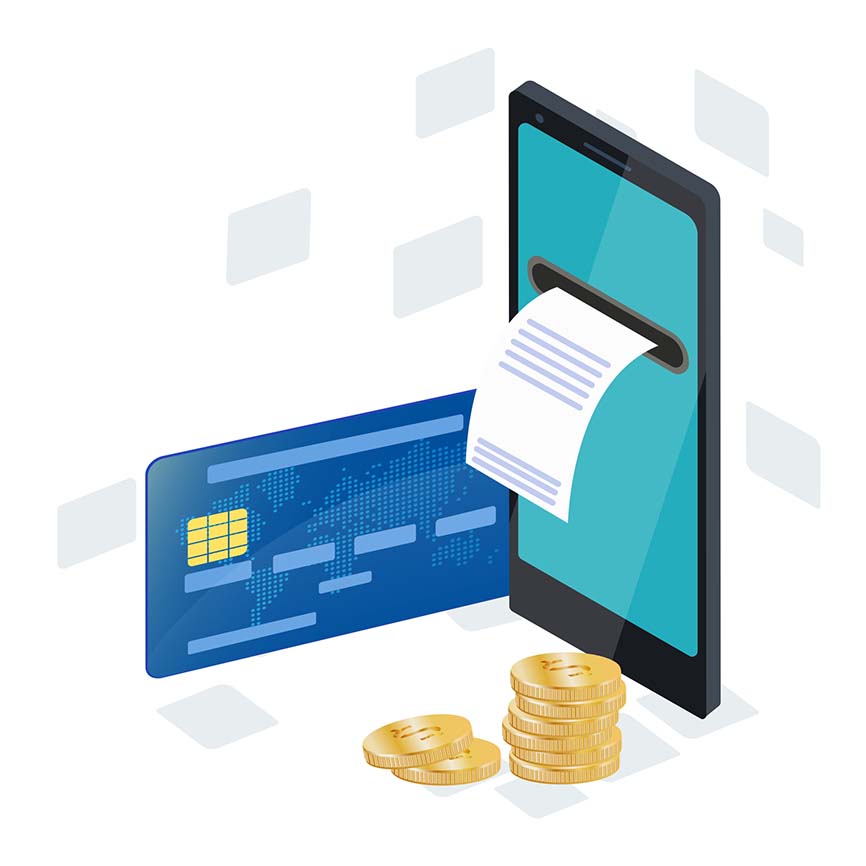
What Are IVR Payments?
IVR payments, or Interactive Voice Response payments, are a way for customers to complete transactions over the phone without speaking to a human agent. Solutions like icePay, ComputerTalk’s PCI-compliant solution for automated payment processing, allow companies to streamline and simplify how they handle payments for products, service renewals, subscriptions, and more.
Instead of speaking to an agent to complete a transaction, customers can simply call a company’s number and be automatically transferred to a secure payment system. Consumers can interact with the system and share payment details either by using their phone keypad, or natural language (if the solution supports natural language processing).
IVR payments systems can either be self-service, or agent assisted. In a self-service system, customers can independently complete transactions without having to interact with an agent at all. With agent-assisted solutions, the customer will initially speak to an agent, who will then transfer them to a payment processing system where they can securely share their payment details.
After customers enter their payment details, the system securely processes the information (ensuring sensitive data isn’t shared with an agent or third-party), verifies the transaction and confirms the payment. These straightforward and convenient solutions are commonplace in many industries, from retail and healthcare to the financial services sector.
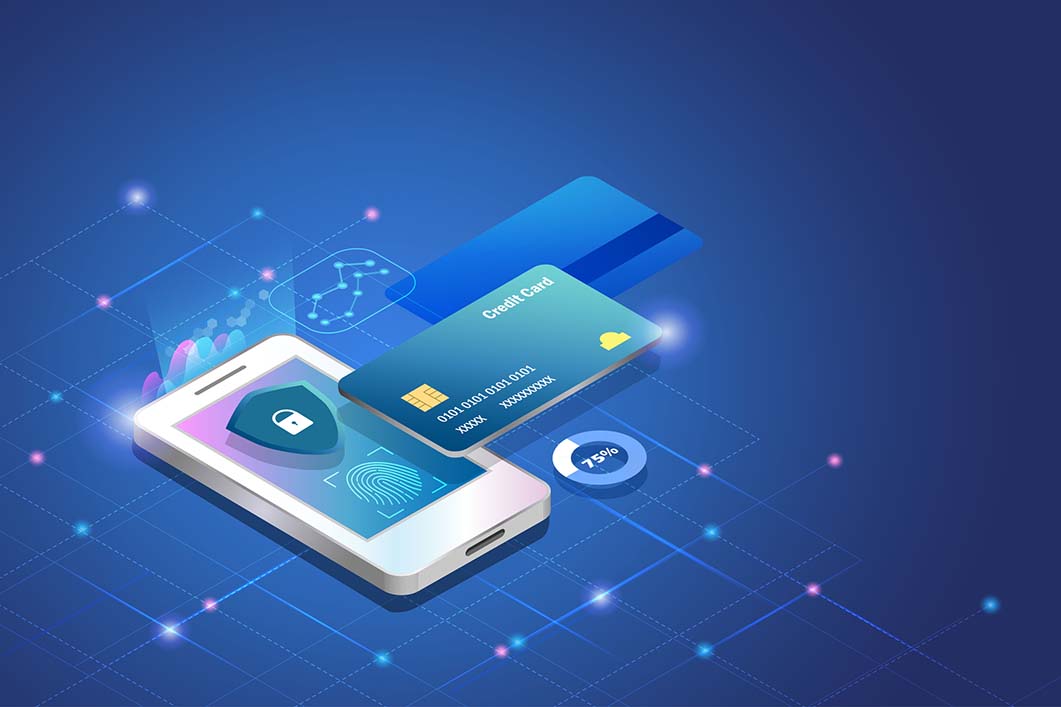
The Top Benefits of IVR Payments
For any company that needs to regularly process transactions, a secure and intelligent IVR payments solution can deliver a host of benefits.
Most significantly, an IVR automated payment processing solution:
- Improves security and compliance: IVR payment systems like icePay are compliant with industry standards like PCI DSS (the Payment Card Industry Data Security Standard). This ensures that sensitive information (like credit card numbers) is encrypted and always protected, reducing the risk of fraud and data theft in the call center.
- Enables 24/7 availability: With IVR payments, customers aren’t restricted to completing transactions during specific business hours. They can contact your company at any time that suits them. This can even reduce the risk of late or missed payments, as consumers can pay bills and place orders whenever it is most convenient for them.
- Improves cashflow: By streamlining the process of making payments, IVR systems encourage faster payments and reduce payment delays. This improves cash flow for businesses and reduces the amount of time agents need to spend chasing payments.
- Enhances call center efficiency: As mentioned above, IVR payments can boost call center efficiency and productivity. It reduces the number of payment-focused calls agents need to handle, giving them more time to focus on other tasks, like offering personalized support or making sales.
- Improves customer experiences: Aside from offering customers a simple and quick way to complete transactions at any time, IVR payments can boost the customer experience in other ways too. It can even help to reduce wait times for customers that contact your call center and give customers peace of mind that their data is protected.
- Reduces errors: Eliminating the need to manually handle credit card data and customer information significantly reduces the risk of human error. Automated systems can improve accuracy, leading to faster, more reliable transactions. Simply put, using your IVR system for automated payment processing improves team performance, enhances customer satisfaction, and reduces your exposure to data security risks.
Industries That Benefit from IVR Payments
Virtually any company that needs to process transactions regularly can benefit from an efficient solution for IVR phone payments. Here are some examples of the industries that benefit most from these technologies:
Ecommerce and retail
In the retail and ecommerce sector, automated payment processing systems offer access to a seamless and convenient payment option for customers. Retailers can even use these systems to ensure customers who might not have access to the internet can still purchase products over the phone with minimal effort.
Utilities and telecom
Telecom and utilities companies also benefit from enabling IVR payments, particularly when it comes to collecting regular bill payments. With an IVR system, customers can pay their bills at any time without having to wait in long call queues or speak to an agent directly. Companies can even use automated systems to proactively reach out to customers and ask them to complete a transaction for a recurring service.
Healthcare
In the healthcare industry, IVR payment systems can streamline the medical billing process, allowing patients to pay bills over the phone. This reduces the need for administrative staff to handle payments manually and can significantly improve collection rates. Patients can even use an IVR system to access up-to-date information on outstanding balances, copayment agreements, and insurance applications.
Financial services
IVR payments systems have become extremely popular in the financial services industry. They give customers a fast and secure way to manage accounts, pay bills, and access additional services. Companies can even create IVR payment flows for a range of use cases, such as when customers want to transfer funds or make loan applications.

IVR Payment Security Features
Just like IVR systems, solutions for IVR payments can come in many different forms. For instance, some advanced solutions like ComputerTalk’s icePay feature built-in natural language processing capabilities, ensuring customers can naturally interact with a menu, rather than relying exclusively on pressing buttons on a dial pad.
However, while the exact capabilities of a solution for IVR payments can vary, all of these tools should include the following security features:
• PCI DSS Compliance
Reliable solutions for IVR payments should adhere to the regulations set by the Payment Card Industry Data Security Standard (PCI DSS). This set of security standards is designed to protect cardholder information both during and after a transaction takes place.
A PCI-DSS compliant IVR payments system will encrypt all data at rest and in transit and ensure credit card details are never stored in unsecured environments. Plus, it will help to ensure human operators aren’t exposed to sensitive data, minimizing the risk of data theft.
• Encryption and Tokenization
Secure IVR payments systems employ advanced encryption and tokenization techniques to help defend sensitive data. Encryption transforms sensitive information like credit card numbers into a code that can only be deciphered by authorized systems. This ensures that even if information is intercepted, it can’t be read or misused by malicious actors.
Tokenization goes a step further by replacing sensitive data with unique identifiers or “tokens,” which are meaningless to unauthorized users. This eliminates the need to store sensitive information in its original form, reducing the risk to customers if criminals gain access to a system.
• Fraud Prevention
As call center fraud remains a critical concern for many companies and consumers, leading IVR systems have begun to implement advanced fraud protection features, to mitigate common risks. For instance, some solutions come with real-time transaction monitoring capabilities. This allows companies to automatically monitor transactions for signs of unusual or potentially fraudulent activity.
IVR payment systems can also be paired with multi-factor authentication solutions, which ensure companies can confirm a user’s identity before allowing a transaction to continue. Customers can be asked to enter additional information during the transaction, such as a one-time password or verification code, bringing an extra layer of security to the payment process.
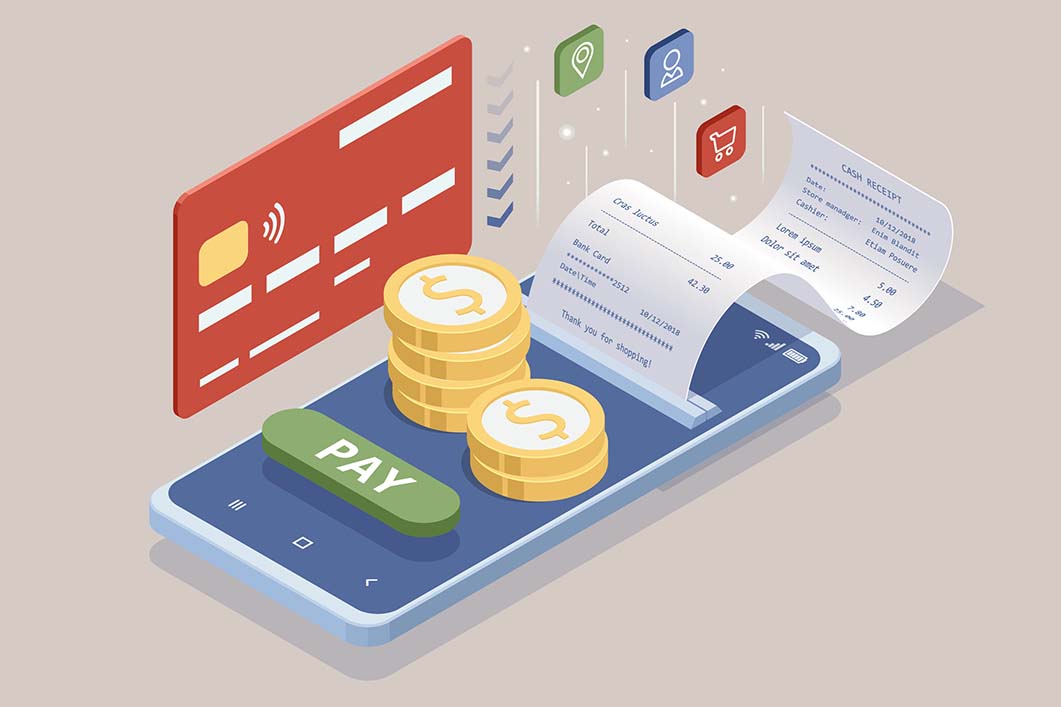
Best Practices for Implementing IVR Payments
IVR payment systems offer a fantastic way for companies to improve customer experiences, boost call center efficiency, and minimize security risks. However, the right implementation strategy is crucial to ensure your system is user-friendly, secure, and reliable. Read on to discover the best practices for a successful IVR payments implementation process.
1. Simplify the Payment Flow
The best automated payment processing solution should make it quick and simple for customers to make payments at any time they choose. Just like your standard IVR menu should be easy to navigate, your IVR payment processing solution needs to be user-friendly and straightforward.
Keep the process simple by minimizing the number of prompts and steps in the payment process. Avoid asking for unnecessary details from customers, and make sure the instructions provided by your system are clear and easy to follow. Other ways to enhance the user experience include:
- Leveraging AI: Using an intelligent IVR system with integrated natural language processing capabilities can improve the user experience, by allowing customers to interact naturally with a menu, rather than relying on keypad entry.
- Offering escalation options: Give customers the option to transfer their call to a live agent when they have issues or additional questions.
- Giving customers the option to repeat instructions: Make sure customers can easily ask the system to repeat certain instructions or information if they miss something important.
2. Prioritize Robust Security Measures
Security is crucial when dealing with payment information in any call center environment. Ensure you choose an IVR payment processing solution that’s fully PCI-DSS compliant. This means your system should never store sensitive data and should enable end-to-end encryption and tokenization.
Incorporating multi-factor authentication tactics into the payment processing experience can also add an extra layer of protection to your system. Consider asking customers for one-time passcodes, or additional forms of verification before they can complete a transaction. This will significantly reduce the risk of unauthorized transactions taking place.
3. Continuously Test and Optimize
Implementing an IVR payment system into your call center isn’t just something you should do once and then forget about. Continuous testing and monitoring are crucial to maintaining security, optimizing performance, and enhancing user experience.
Test your IVR system on a weekly or monthly basis to ensure it meets performance standards. Monitor system uptime, payment processing accuracy, and customer feedback to detect any issues that might harm the user experience. Use real-time monitoring and analytical tools to keep track of suspicious activities and ensure you can take a proactive approach to minimizing fraud.
Additionally, regularly updating the software will helps to eliminate potential bugs and keep your solution secure against emerging threats.
The Future of IVR Payment Solutions
IVR payment solutions might not be a new concept in the call center environment, but like many contact center technologies, they have become more advanced in recent years. Advances in AI and automation technologies are quickly making these systems more intuitive and efficient than ever before.
For instance, AI-driven IVR systems are transforming how businesses handle payments, allowing customers to interact with menus and payment solutions using natural language, rather than pressing buttons on a keypad. AI-powered systems can even improve security, by recognizing biometric details in a customer’s voice during the authentication process.
Plus, AI solutions can help to deliver more personalized experiences to customers, suggesting payment options, plans and even products based on previous purchases. They can draw information from CRM systems and databases, to help tailor each interaction to a customer’s needs. This not only improves the customer experience but can lead to increased conversions and greater brand loyalty.
Omnichannel solutions are also becoming more common in the IVR payment processing world. Today’s companies can combine IVR payment processing solutions with tools for online, mobile, and other forms of transactions, giving customers the complete flexibility over how they complete transactions.
Organizations can even develop systems that allow customers to start a payment process on one platform, such as a website or mobile app, then complete it through an IVR system.
Discover the Benefits of IVR Payments
For companies in various industries, IVR payment technologies have become essential tools for improving security, team efficiency, and customer experiences. By automating and streamlining the payment process, IVR systems deliver convenience to customers, reduce the number of calls agents need to handle each day, and help to minimize security risks.
The key to getting the most value out of this technology is choosing the right solution. ComputerTalk’s icePay system is PCI-DSS compliant, easy to implement, and supports both self-service and agent assisted payment experiences.
Discover how you can transform the payment processing journey for your customers, enhance call center operations and reduce security risks with icePay today, by contacting the ComputerTalk team, or requesting a demo.
More from our blog
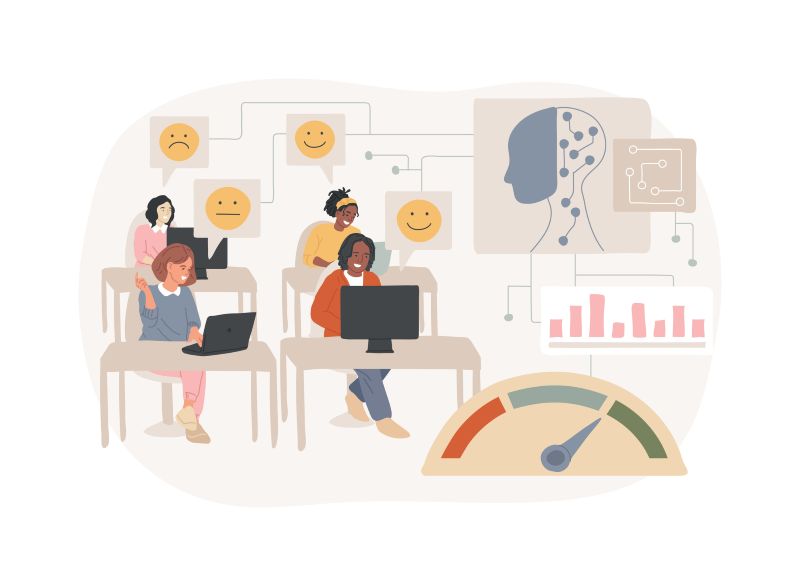 Traditional metrics don't always reflect how customers actually feel. Sentiment analysis uses NLP to uncover the emotions behind every interaction, helping contact centers improve experiences, not just outcomes.
Traditional metrics don't always reflect how customers actually feel. Sentiment analysis uses NLP to uncover the emotions behind every interaction, helping contact centers improve experiences, not just outcomes.
 Think AI in customer service is just for retail companies? Think again. With artificial intelligence, educators can deliver better student and customer support at scale, while reducing costs. It’s a win-win for everyone. As AI becomes more versatile, sophisticated, and...
Think AI in customer service is just for retail companies? Think again. With artificial intelligence, educators can deliver better student and customer support at scale, while reducing costs. It’s a win-win for everyone. As AI becomes more versatile, sophisticated, and...
 Think that call centers are just for managing customer-facing communications? Think again. In today’s fast-paced and ever-evolving business world, your employees need a streamlined and intuitive way to access support, share information, and submit inquiries too. That’s where an internal...
Think that call centers are just for managing customer-facing communications? Think again. In today’s fast-paced and ever-evolving business world, your employees need a streamlined and intuitive way to access support, share information, and submit inquiries too. That’s where an internal...

